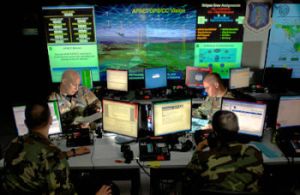Synopsis
Syrian President Bashar al-Assad’s staunchest ally, Iran, is hinting that its support for the embattled leader is not unconditional. Iranian Supreme Leader Ayatollah Ali Khamenei is preparing for the likelihood that Assad will fall.
Commentary
THE ONGOING popular revolt in Syria against President Bashar al Assad is putting strains on his relations with Iran’s theocratic ruler Ayatollah Khamenei. Syria’s relationship with Iran has been based on political opportunism rather than a shared common good. Unlike the Islamic republic, Syria has been ruled as a secular country even if its Shia-related Alawite sect dominates the Arab nation’s Sunni Muslim majority.
Nevertheless the alliance with Khamenei puts Assad at odds with his Arab brethren, many of whom see Iran as a subversive power seeking to undermine them with the wave of anti-government protests sweeping the Middle East and North Africa. But it gave Assad political clout and allowed him to position himself as the one Arab leader who had not bowed to the West.
Safeguarding Iranian interests
In return Assad was Khamenei’s wedge in the Arab world and his conduit to Hezbollah, the Shiite militia in Lebanon on Israel’s northern border. Syria was the only Arab state to back Iran in its eight-year long war against Iraq in the 1980s. The Arab League that groups the region’s 22 Arab states has condemned Assad’s brutal crackdown on the anti-government protesters; Saudi Arabia and most other Gulf states have withdrawn their ambassadors from Damascus. The Syrian military’s violent crushing of the protesters in the past six months has isolated Assad internationally. Turkey, and even his staunchest non-Muslim friends, China and Russia, are pulling back and demanding that he halt the bloodshed against his own people.
As the international community anticipates that Assad’s ouster is just a matter of time, Iran’s Khamenei is not about to become the only leader to back a loser. However Khamenei is unlikely to declare his change of heart publicly, for that would make the Islamic republic look like a fair weather friend.
Khamenei, however, will want to salvage what he can by positioning himself for the post-Assad era so that he can safeguard Iran’s strategic interests in Syria. He is conscious that support for Assad erodes Iranian credibility in the Middle East and North Africa. A recent poll conducted in six Arab countries by the Arab-American Institute showed that Iranian popularity had dropped dramatically, while there are reports by defectors from Assad’s security forces that Iranian military personnel and snipers have been deployed alongside the Syrian leader’s acolytes to fire on protesters. Khamenei is said to be signalling that their alliance may not be eternal.
Writing on the wall
Going by the Iranian state-run media Khamenei and other Iranian leaders are for the first time starting to prepare for a world without Assad.
To be sure, the Iranian press continues to give loud support to Assad and denounce the protesters as foreign agents backed by the United States, Britain and Israel. Iranian news agencies still allege that millions are on the streets of Syrian cities to express their support for Assad. But for the first time, the media are also reporting on Syrian military attacks on unarmed protesters, quoting human rights activists, and not just echoing Syria’s official version that it is battling armed Al Qaeda-inspired gangs operating on behalf of foreign powers.
In fact, the Iranian media have started to go further, calling on Assad to engage the protesters and embark on a road of reform rather than rely on military might to resolve his domestic problems. “Assad’s salvation is in reforms and not in the barrel of the gun,” read a recent headline in Jomhouri Eslami, a newspaper with close ties to Khamenei.
The newspaper reported that the Syrian military had killed hundreds of civilians in the cities of Homs and Dera’a. “A question which Assad and his advisers have to answer is: how long can they continue with armed confrontation and violence? Can they use more violence than Gaddafi and bombard demonstrators like him? Did Gaddafi’s use of violence return the people to their homes?” Jomhouri Eslami asked in reference to Libyan leader Colonel Moammar Gaddafi’s bitter war against rebels seeking to overthrow him. The paper’s comments are remarkable given the United Nations-authorised no-fly zone in Libya and NATO backing for the rebels.
Losing Iran would leave Assad completely isolated – especially in the wake of Turkish warnings that Ankara can no longer stand idly by as the killing in Syria continues. The writing is clearly on the wall for the embattled Syrian president.
About The Author:
James M. Dorsey is a senior fellow at the S. Rajaratnam School of International Studies at Nanyang Technological University in Singapore and the author of the blog, The Turbulent World of Middle East Soccer.

 von
von 